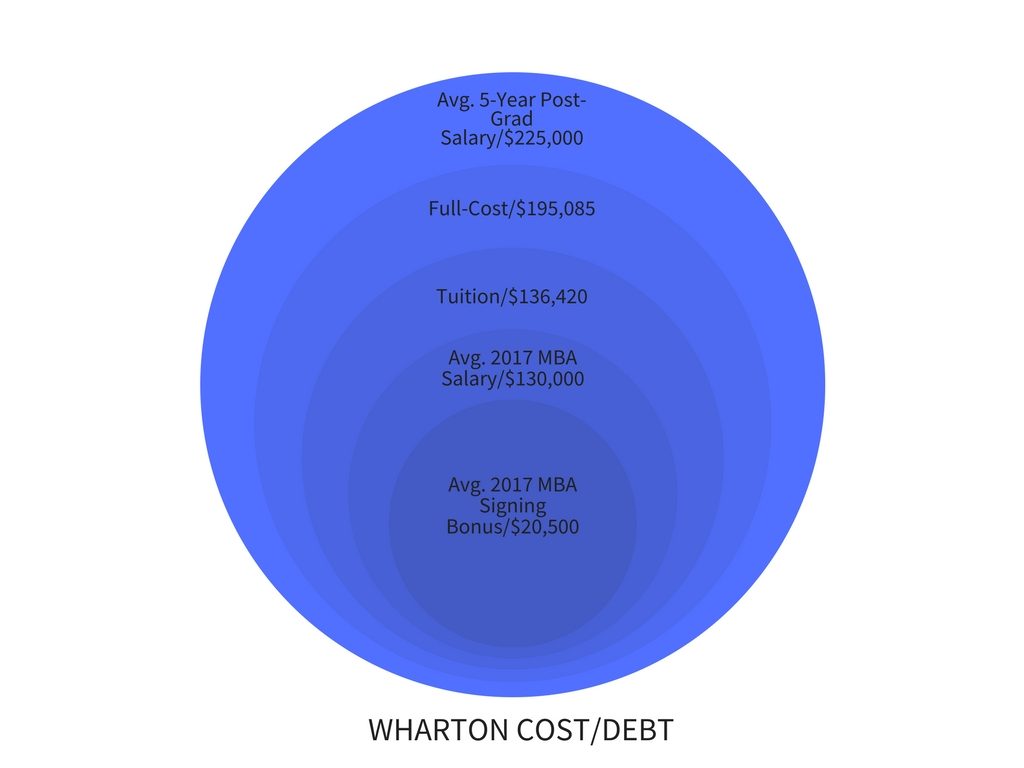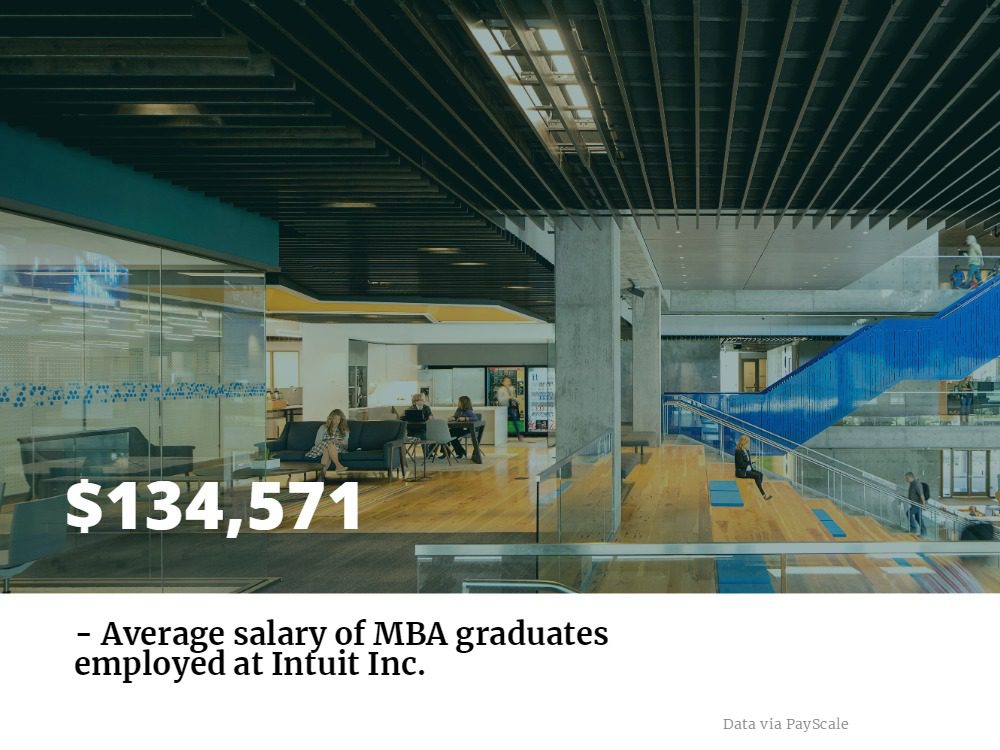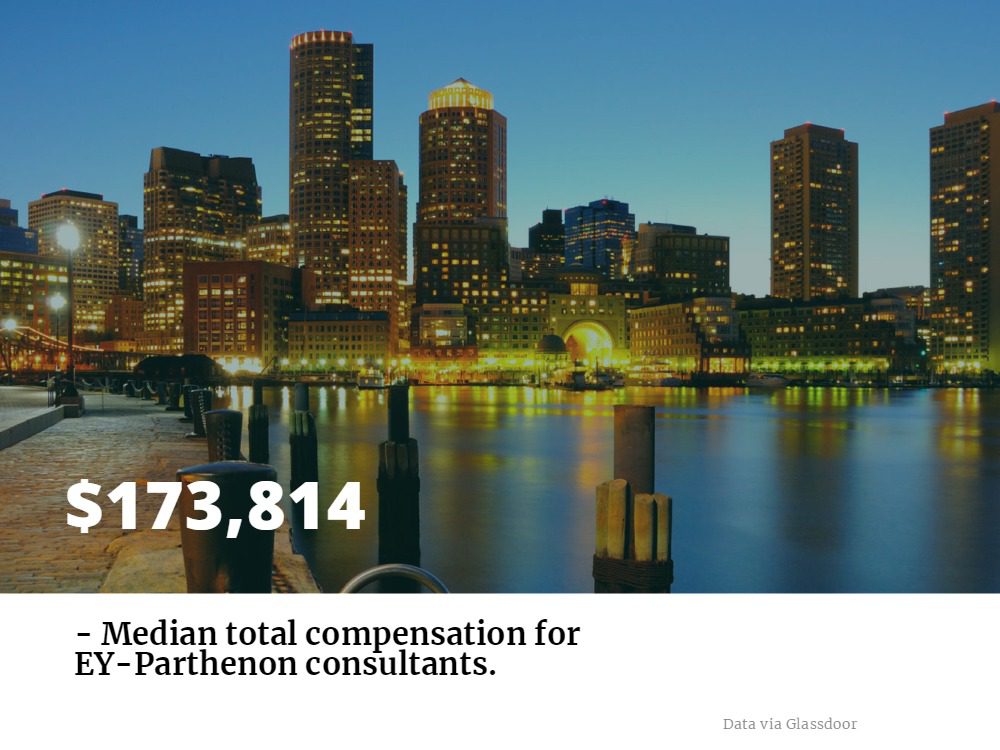Search results for :
Barack Obama to Speak at 12th Annual MIT Sloan Sports Analytics Conference
It was announced earlier this week that former U.S. President Barack Obama will be among the honorary speakers at this year’s MIT Sloan Sports Analytics Conference.
The 12th annual event arrives at the Boston Convention and Exhibition Center February 23 and 24. Alongside Obama, the highly publicized conference will feature some of the biggest names in the sports industry, including: former Microsoft CEO and Los Angeles Clippers owner Steve Ballmer, Major League Baseball commissioner Rob Manfred, National Hockey League commissioner Gary Bettman, National Basketball League commissioner Adam Silver, former professional athletes like Steve Nash and Alex Rodriguez, and Seattle Storm point guard and U.S. Olympian Sue Bird, among others.
Co-founded by MIT Sloan School of Management MBA graduate Daryl Morey, the current general manager of the Houston Rockets, and Kraft Analytics Group CEO Jessica Gelman in 2006, the annual conference has transformed into one of the most formative sports business events in the world. Since its inception, the event has spawned and popularized numerous movements in the industry, including basketball’s strategic revolution (they call it MoreyBall for a reason).
During his tenure in the White House, Obama’s sports fandom became a much-publicized part of his public persona, appearing on ESPN throughout his two terms to discuss the NCAA tournament, college football playoffs, and more.
.@BarackObama, the 44th President of the United States, will speak at @SloanSportsConf February 23. We are pleased to welcome President Barack Obama, a well-known sports fan. Visit https://t.co/2E9wO8Qo5K for more details #SSAC18 #analyzethis
— Sloan Sports Conf. (@SloanSportsConf) January 6, 2018
Obama will be speaking on the first day of the conference, Friday, February 23. Alongside the notable speakers, the conference features career help seminars, a case competition, an in-depth multi-day look into esports, a hackathon, and much more.
The MIT Sloan Analytics Conference website reads:
“At our roots, we are about education and our goal is to provide more opportunities for sharing industry successes, to create forums to discuss the most challenging topics of the day, and to continue identifying new ideas. As a conference we are firmly committed to innovation. Each year, we have added new elements to push the larger analytics conversation forward. Recent years have seen advances from the Research Paper competition started in 2010 to the popular and successful Hack-A-Thon, the introduction of an esports room, doubling the number of Competitive Advantage talks, expansion of the Startup Tradeshow competition, and introduction of industry-specific workshops. Despite our past successes, we firmly believe that the best is yet to come.”
Find out more information about the event and register today.
Finding Philly’s Best MBA Return on Investment
It’s no secret that Philadelphia’s relatively low cost of living has historically made the Birthplace of America an attractive option for those in search of a big city experience outside the skyrocketing markets of other major East Coast cities.
As people flock from the New York metro region in search of a similar urban adventure at a substantially lower price point, Philadelphia has been controversially dubbed the “6th Borough.” Word to the wise for potential b-school interlopers: never tell any Philadelphian their home has been annexed by New York City.
About 90 minutes by train from New York City, the City of Brotherly Love is no Big Apple, but it’s one-of-a-kind. Sure, tourists and locals alike grip cheesesteaks in one hand while pumping their fists on the steps of the Art Museum a la Rocky, but the city reveals itself to those who have the patience (and wherewithal) to dig into it.
Whether that means embarking on a two-year MBA program or choosing among the accelerated options available, Philadelphia just happens to be home to several top ranked MBA programs in the world. Let’s take a close look at Philly’s programs. Oh, and here’s a napkin for the wiz.
Philadelphia Return on Investment
University of Pennsylvania’s Wharton School of Business
Officially the oldest business school in the U.S., The Wharton School at the University of Pennsylvania boasts well-known alumni billionaire financier Ron Perelman, LinkedIn CEO Jeff Weiner, and John Sculley of Pepsi and Apple. Wharton’s tuition of $136,420 and estimated total budget of $195,085 isn’t to be taken lightly. However, full-time MBA graduates earn an average base salary of $130,000 with an average bonus of $20,500, and a supreme 92.6 percent job acceptance rate. So, while having a somewhat unimpressive salary-to-debt ratio, Wharton’s reputation and alumni network precedes itself.
In fact, the school recently topped the annual Forbes best full-time MBA program list, sporting the best five-year financial gain after graduation. Wharton MBA graduates of the Class of 2012 are making a $225,000 average annual salary—roughly 42 percent higher than recent grads, easily topping the cost/debt ratio of the program.

Saint Joseph’s Haub School of Business
Notable alumni of Haub School of Business at Saint Joseph’s University include CEO of NutriSystems, Inc. Michael J. Hagan, Chairman and founder of Philadelphia Consolidated Holding Corporation James J. Maguire, and Senior vice president of PNC Bank Denise Viola-Monahan. SJU’s $30,294 tuition set against an average base salary of $65,000 means the school offers a competitive MBA to those who don’t want to break the bank.
Temple’s Fox School of Business
Fox School of Business at Temple University’s notable alumni include Systel CEO Jai Gulati, former COO and president for ConocoPhillips John Carrig, and CEO of Actavis and co-founder of Health Care Compliance Association Brenton L. Saunders. Fox’s tuition sits at $57,048 for residents and $80,484 for nonresidents. With a 97 percent job placement rate compared to $25,623 average debt and a $85,278 average base salary, Fox’s salary-to-debt ratio looks attractive.
Drexel University LeBow College of Business
The LeBow College of Business at Drexel University alumni include President and CEO of Rohm and Haas Raj Gupta, former CEO of Science Applications International Corp. Kenneth C. Dahlberg, and the Phillie Phanatic Tom Burgoyne. Tuition is $59,565, and graduating MBAs carry an average debt of $43,894. With a reported average base salary of $84,080, LeBow’s salary-to-debt ratio is competitive. Considering the comparatively low price point, LeBow emerges as an incredibly attractive ROI.
YOU MAY ALSO LIKE: How Philadelphia MBA Programs Help Lower-Income Applicants
University of Delaware Lerner College of Business
A short 20-minute train ride from Center City Philadelphia and under two hours from New York City, the Lerner College at the University of Delaware has an eye-catching reported average base salary of $90,291. Compared to tuition, which ranges from $33,000 to $55,000, depending on residency, Lerner’s ROI could shine through if figures hold true for most MBA earners from this institution.
Penn State Smeal College of Business
Although its central campus is located in Happy Valley, PA, the Smeal College of Business at Penn State offers an executive MBA program in Philadelphia. The program is priced at a hefty $102,000, but average graduate debt is reported at $36,500, and median salaries ranging from $97,890 to $101,857. With such an impressive salary-to-debt ratio, Smeal is an attractive option for those who prefer easy metro access rather than living in the thick of the action. Notable alumni include Chairman and CEO of Petroleum Products Corp. John Arnold, and Former Chairman and CEO of Merrill Lynch & Co. William Schreyer.
Choosing the Best MBA: Philadelphia vs. Washington DC
On the surface, cities like Philadelphia and Washington DC appear to have a lot in common. Both have occupied roles as a center of U.S. history, and have transformed into exciting and ever-changing metros for both established businesses and new startups. If you’re interested in earning an MBA in a top metro area on the East Coast, it might seem impossible to choose between the two.
Even so, Philadelphia and DC offer a number of exciting—but different—kinds of opportunities for up-and-coming business professionals. Between what program you want to pursue and what kind of career you envision yourself in down the line, understanding the differences between top metros can be a crucial part of planning your future. Below, we’ll break down some of the biggest differences in location, programs, and job placement for each metro.
Philadelphia vs. Washington DC: The Differences
For ambitious business students hoping to put their education to work in a government agency, it’ll be hard to beat the nation’s capital for opportunities and experience. Even for those looking outside of the government setting, the DC metro area is home to fifteen companies on the Fortune 500 list, including corporate giants like Exxon Mobile and Walmart. Yet while such heavy hitting companies in the area provide a high earning potential, MBAs will still want to consider the high price of living in DC: currently, the city ranks as the third most expensive place to live in the country.
Check This Out: Searching for the World’s Top MBA Recruiters: Comcast
While Philadelphia may not be the city that pops into your mind as a bustling center of business, research shows the City of Brotherly Love can’t be beat when considering the job market and affordability: a 2016 survey from Adobo found that Philadelphia’s unemployment rate was 20 basis points below the national average, while the average price of a home was at or below 30 percent of the average income. MBA graduates will find no shortage of business opportunities in the city, even among major firms: in 2017, 20 companies in the Philadelphia metro made the Fortune 500 list.
Washington DC’s Full-Time MBA Programs
Featuring more than 35 higher education institutions with post-bachelor business programs, Washington DC is home to some of the top MBA programs in the United States. Fully aware that many of these programs will shape future politicians and government leaders, many of the MBA programs in Washington DC include a focus on integrity and ethics within the global business community.
Full-Time MBA Programs in DC Include:
- George Mason University School of Business
- George Washington University School of Business
- Kogod School of Business – American University
- University of Maryland R.H. Smith School of Business
- McDonough School of Business – Georgetown University
Philadelphia’s Full-Time MBA Programs
When it comes to business schools, Philadelphia is probably best known for The Wharton School at the University of Pennsylvania, consistently named as one of the top business programs in the world. But Philly is also home to a wide range of programs with a variety of specializations. Programs like the full-time MBA at Temple University’s Fox School of Business also offer students to take their education beyond Philadelphia, with international campuses based in Italy, London, and Japan.
Full-Time MBA Programs in Philadelphia Include:
- La Salle University
- LeBow College of Business – Drexel University
- Villanova School of Business
- West Chester University
Cost of MBA Programs
Just as important a factor as cost of living, average cost for an MBA program is an important consideration when choosing where to earn your degree. As expected, top programs in both Philadelphia and Washington DC can come with a high price tag. The average cost estimate for one year at Wharton is $105,265, while tuition at DC’s Georgetown McDonough School of Business is $90,591. The average for each city, however, remains much for affordable: approximately $82,090 for programs in Washington DC, and slightly lower in Philadelphia—schools like West Chester even offer an MBA as low as $21,000 per year.
Job Placement and Salary
With so many incredible companies located in both Washington DC and Philadelphia, MBAs have the chance to earn top salaries that can go a long way in both cities. Depending on the position, MBAs in Philadelphia can make anywhere from $64,665 per year (as a financial analyst) to $104,186 per year (as a senior product manager). In Washington DC, the average salary for an MBA graduate is in the $80,000 range, with employees reporting yearly salaries of $74,758 (operations manager) up to $111,983 (marketing director).
Rounding Out the Best Return on Investment for New York City MBAs, Part III
In an accelerated political and economic landscape, New York City remains the center of gravity for international business. But year after year, how do newly minted New Yorkers survive in a city where the cost of living is reportedly 70 percent higher than the national average? This is especially true now when fewer and fewer aspiring professionals can afford to sacrifice continuity of employment to advance their careers.
Beyond Business School: Emory Goizueta MBA Alumni Make Waves
One of the key quality indicators of an MBA program is its alumni. By looking at a school’s alumni, you can get a sense of the kinds of individuals who are drawn to the program, the impact the program can have on your future career, and the type of network you’ll have access to. At Emory University’s Goizueta Business School, this network includes Nick Harris, the director of digital operations and optimization for United Airlines in Chicago, and Elizabeth Halkos, the chief operating officer at Purchasing Power, an e-commerce company that provides voluntary benefits programs to employers to help their employees improve their financial well-being.
Nick Harris — ’08 EvMBA
Nick Harris’ job is all about enhancing the online shopping experience for United Airlines customers. To do this, he spends his days studying the behavior of visitors to United.com, from using their smartphones to shop to purchasing a service bundle. He then looks at what the competition is doing to ensure that United Airlines keeps on top of the latest trends.
Talking about his job, Harris told Goizueta: “An average week for me usually involves looking at a wealth of information or data and trying to understand what types of hypotheses we can generate based off how customers are behaving or transacting with our channels.”
For example, one of Harris’ main tasks is ensuring that consumers can purchase products on the United Airlines app as easily as they do on a webpage using their smartphones or computer. He also has to keep up with what the giants of customer service—Google, Apple, and Amazon—are doing.
Harris told Goizueta that when these companies offer a new service or do something really intelligent, they set a new standard that United Airlines has to keep up with. “You’re not just competing against others in your industry; you’re competing for mind space and time with all of the other devices and apps that are on customers’ phones,” he says.
However, this can be difficult for a large company that’s nearly 100 years old, but that challenge is part of what Harris enjoys. Harris regularly partners with other product owners to enhance the digital experience, collaborating across teams to assess metrics together to identify opportunities to improve the overall United Airlines customer experience.
“One of the things that we’ve been doing a lot is looking at web analytics data and marrying that with transactional data. As a company, we have loads of transactional data, which is one of the things that I absolutely love about being at a company this size,” explains Harris.

Nick Harris
His interest in working for a company like United Airlines was one of the reasons that Harris chose Emory for his MBA. Prior to attending Goizueta, he was employed at a small tech firm and considering launching an investment group with a few friends. The problem was that Harris didn’t have the right tool set and background to succeed. So, he began to look into the Goizueta Evening MBA program.
“I felt it was worth the investment to go back to school and take the time to grow in a structured learning environment, in order to build that tool set,” he says. “This way I could evaluate our opportunities and learn the science of business.”
But, in the end, it wasn’t just the classroom experience that impacted Harris, it was the relationships that he built. In particular, his relationship with Professor Patrick Noonan led him to the airline industry. “We were talking one day, and Noonan says, ‘If you really like this work and you’re interested in doing optimization, you should think about the airline industry, given all of the work they do from a space revenue management standpoint,” remembers Harris. And the rest was history.
Elizabeth Halkos – ’01 MBA
As the chief operating officer at Purchasing Power, Elizabeth Halkos has a good deal of leadership experience, which was recently recognized during the 14th annual Stevie Awards for Women in Business. Halkos was praised for raising the bar professionally and as a teacher and mentor for young women looking to launch their own ventures. This and her other accomplishments led her to be named a Silver Award Winner in the “Female Executive of the Year, Business Services: 11 to 2,500 Employees – Business Services” category.
Since 2002, the Stevie Awards have honored women executives, entrepreneurs, employees, and the companies they run globally. Each year, more than 170 professionals worldwide come together on five specialized juries to nominate the top women and organizations across more than 60 nations.

Elizabeth Halkos
After earning her MBA with a concentration in statistics and data analytics at Emory Goizueta in 2001, Halkos went on to work as a brand manager at Earthlink, Inc. and an account executive at Monster.com. From there, she served two years at the Inforte Corporation, where she consulted with such clients as Miller Brewing Company and Ocean Spray. Then, finally, she found her way to Purchasing Power in 2006.
Halkos started at Purchasing Power as the vice president of sales and marketing and quickly moved up the ranks. By 2010, she was promoted to chief marketing officer and then to chief revenue officer by 2014. In January of 2017, she was appointed to her current role of COO.
Halkos’s achievements at Purchasing Power include driving the top line revenue from $30M to more than $400M over a decade and helping the EBITDA (earnings before interest, taxes, depreciation, and amortization) grow from $5M to more than $40M. Most recently, she played an integral role in launching Purchasing Power’s 2017 rebranding campaign, which included new channel partnership strategies. This resulted in a 19 percent revenue and 80.5 percent adjusted EBITDA growth, compared to the same six months the previous year.
Halkos’s responsibilities at Purchasing Power include oversight of sales, account management, client services, customer experience, customer care, customer operations, business-to-business marketing, and public relations. She is also responsible for leading the broker and employer growth strategies for the company, which has helped Purchasing Power place on the “Inc. 5000 List of America’s Fastest-Growing Companies” for nine years in a row.
Outside of her job at Purchasing Power, Halkos is still very involved at Emory Goizueta. Since 2008, she has served as a board member, and previously served as president and vice president of the board. Recently, Halkos was also chosen as the recipient of Emory University’s “Annual Service Award” in recognition of her involvement in mentoring and supporting students at Goizueta.
To learn more about MBA alumni at Emory Goizueta, visit the school’s website.
This article has been edited and republished with permissions from our sister site, Clear Admit.
Harvard Reveals 5 New Years Resolutions You Can Actually Keep
You aren’t even a week into 2018 and are already regretting that gym membership, but, you still have time to refine how you want your year to look. Carmen Nobel at Harvard Business School Working Knowledge discussed some more “realistic” efforts you can take.
Executive MBA
Daniels Executive MBA Program Structure
The 18-month Executive MBA program meets on alternating Fridays and Saturdays from 8 a.m. to 5 p.m. The average class size hovers between 30 and 35 students, and EMBA students note that the collaboration and networking within the close-knit group offer a unique learning opportunity for students to learn from other seasoned professionals. The program follows a lock-step pattern in which 24 five-week courses are taken in sequential order, building on one another and intermixing experiential learning opportunities.
Curriculum
The EMBA courses are broken down into four categories: Leadership, Quantitative, Strategy, and Business Context/Conclusion. The Quantitative courses are more heavily weighted towards the beginning of the program, while the Leadership and Strategy courses are primarily taken in the last three quarters. With a Team Sail Weekend and an 11-day Global Travel Experience, the EMBA also emphasizes the importance of both cohort camaraderie and learning by doing.
Class Profile
The average incoming Executive MBA student is 39-years old, and has 15 years of work experience including at least nine years of managerial experience. Thirty percent of the class is female, and 10 percent of the class identify as entrepreneurs.
Careers
Daniels Career Services provides advising and resources to all graduate students, including EMBA entrants who are typically already employed. The specific support depends on the type of degree and the employment situation at hand, and the Career Services team tailors its resources accordingly, beginning immediately upon matriculation.
Tuition, Scholarships, and Financial Aid
Tuition for the Daniels Executive MBA is set at $97,200, payable over six installments, and includes costs for all course materials, meals on the days classes meet, and travel expenses for the required trips.
Admissions
A completed application to the Executive MBA program requires official or unofficial transcripts from all institutions attended, a GMAT or GRE score, two mandatory essays and one optional essay, proof of at least ten years of work experience, a professional résumé, TOEFL or IELTS scores if applicable, and a $100 application fee. The school offers an exception to the application fee for any DU graduates, and any current or former member of the U.S. military, Peace Corps, AmeriCorps, or Teach for America. Executive MBA students may be exempted from the GMAT/GRE requirement if they have the required work and management experience.
Interviews are a required part of the admissions process.
Unlike the other MBA programs within Daniels, the Executive MBA employs a rolling admissions policy. Interviews are required, and a decision will be sent approximately one week after the interview.
How To Break Into the Tech Industry: Intuit Inc.
Since 1983, Intuit Inc.—the Mountain View, CA software company that spearheaded the creation of products like TurboTax, Quickbooks, and Mint—has effectively changed the way the average person manages their money. And with more and more MBAs shedding their finance industry aspirations for a role in tech, a job with one of the most well-regarded tech organizations is looking especially ideal.
Why Should I Join Intuit Inc.?
Intuit Inc. was ranked 13th overall on Fortune’s 2017 list of the “100 Best Companies to Work For,” and 30th overall on Glassdoor‘s newest “Best Places to Work” list. The company takes a holistic approach to ensuring company well-being. Intuit has 24-hour onsite gyms, and even provides a certain amount of bicycles for employees who bike to work. Fortune listed job perks like telecommuting, compressed work weeks, college tuition reimbursement, daily free time to pursue other projects, and paid time off for volunteering.

Many of the positions at Intuit are, unsurprisingly, tech-based, so an MBA may not be as advantageous in getting an engineering position. However, according to PayScale data, MBAs are typically the highest earners at Intuit, with the average MBA earning nearly $125,000 per year.
What Internships are Available?
Intuit Inc. has a specific internship for MBAs: the MBA Intern Marketing Manager position. This internship is offered in Intuit’s California locations in Mountain View and San Diego, as well as in Plano, Texas. In this position, MBAs help the company gain insight into the needs of customers and the effectiveness of current marketing strategies, through research and testing. According to the company website, these interns also have the opportunity to partner with teams working in, “Product Management, Development, Finance and Care.” This is a paid summer internship, so students can cover the cost of living while observing and contributing to innovations at a leading software company.
Intuit is currently offering a variety of other internship positions that might be appropriate for MBAs, such as a Marketing Intern position in London. MBAs specializing in Supply Chain Management can apply to be Supply Chain Specialist Interns, and work closely with Intuit’s Supply Chain Finance team.
At the company, it is not uncommon for intern’s to parlay their positions into full-time jobs after graduation. The company’s website says that its internship program, “is truly an ‘early identification’ program, focusing on identifying and investing in high potential university students really to encourage them in their early careers and potentially to bring their talent back to Intuit after graduation.”
How to Get Hired at Intuit
In recent years, Intuit has moved from a traditional interview process, to an innovative method of vetting candidates that incorporates virtual reality. Their hiring program, Assessing for Awesome (A4A), requires that candidates: “Speak for five minutes about themselves; speak for 15 minutes about two or three projects of which they’re proud; prepare a 15-minute presentation on a case study or coding exercise; participate in a 25-minute question and answer period.” The interview is conducted by an advanced staff member who works closely with the position in question. The company uses virtual reality to allow candidates to demonstrate their skill sets.
Intuit Inc. hires graduates and interns from a number of the top-rated business programs in the country, including the Northwestern University Kellogg School of Management in Chicago, Illinois, which brought in full-time employees and interns from the most recent graduating class. Some of the most highly-regarded MBA programs offer various tech industry advantages, including the recently introduced Tech MBA at NYU Stern, and the promising new Cornell Johnson Tech MBA, offered at the school’s new New York City campus.
For more information on which school’s provide the best opportunities to join the tech industry, head on over to our sister site Clear Admit, which recently took a look at programs from other established institutions like the UCLA Anderson School of Management and MIT Sloan.
Part-Time Professional MBA
Daniels Professional MBA Program Structure
The part-time Professional MBA (PMBA) at the University of Denver Daniels College of Business is designed to fit the schedules of young, working professionals who will earn their MBA while continuing to work full-time. Classes in the Professional MBA are held from 6 to 10 p.m. on Mondays and Wednesdays each week, and the 60-credit degree takes 21 months to complete. Eight Saturday sessions make up the rest of the course delivery time. All classes are recorded, giving students the opportunity to review at a later date, or make up the lesson in the event of a conflict. Students may enter the program in Spring or Fall.
Curriculum
The PMBA has a slightly different curriculum than the full-time alternative, while maintaining the core of what Daniels believes in: a hands-on learning approach while tackling real-world challenges. Three required learning projects help achieve this goal, beginning with the “Leading at the Edge” program in which students travel to the Rocky Mountains to engage in a three-day outdoor team-building exercise. The PMBA International Travel Seminar allows students to examine global business problems during an eight-day trip. Finally, the Capstone Project rounds out the program as students work in groups to create a project that contributes to their local business community.
The PMBA is made up of 52 required core course credits and eight elective credits, totaling a required number of 60 credits to graduate. However, some students may choose to complete a 16-credit concentration, bringing the final number of credits to 68.
Careers
The Daniels College of Business hails its career preparation as one of the most distinctive features of the MBA program. Taking a fully integrative approach, students begin thinking about their professional development from the moment they step foot on campus. Utilizing an ongoing 360 review process, individual advising, online resources, mentorship programs, and a plethora of networking opportunities, Daniels Career Services ensures comprehensive preparation for each student entering the post-graduate school employment force. The continual self-assessment allows students to grow and adapt to their changing goals throughout the course of the program.
Tuition, Scholarships, and Financial Aid
Tuition for the Daniels part-time Professional MBA is $82,980, paid in quarterly installments, and includes expenses for the required experiential trips.
Admissions
A completed application to the Daniels College of Business requires official or unofficial transcripts from all institutions attended, a GMAT or GRE score, two mandatory essays and one optional essay, proof of at least two years of work experience, a professional résumé, TOEFL or IELTS scores if applicable, and a $100 application fee. The school offers an exception to the application fee for any DU graduates, and any current or former member of the U.S. military, Peace Corps, AmeriCorps, or Teach for America.
Interviews are offered by invitation only and are conducted either in-person or via Skype. After submitting a completed application, a member of the admissions committee will contact students if they are selected to interview.
Application deadlines are as follows:
Deadlines for Spring Quarter 2022
Spring Quarter 2022 is currently open for eligible programs.
Round 1—October 15, 2021
Round 2—December 5, 2021
Final—January 15, 2022
Applicants will be considered on the basis of available seats through March 15, 2022.
Deadlines for Fall Quarter 2022
Priority—October 15, 2021
Round 1—January 15, 2022
Round 2—March 15, 2022
Final—May 1, 2022
Executive MBA
Executive MBA Program Structure
The CU Executive MBA is a flexible, rigorous program designed to be completed in less than two years while still working full-time. Over the course of two nine-month academic calendars that begin each September, classes meet every other weekend on both Friday and Saturday. Each class day is broken into a morning and afternoon session of three-and-a-half hours each, with a break for lunch.
Curriculum
In addition to eight consecutive class terms, the EMBA also includes professional modules and experiential learning opportunities. After term 2, the class travels to Northern India for their first of two global immersion trips, followed by an Executive Development Workshop. After two more terms, the class travels to China for the second global immersion trip and follows the trip with professional development days, and then two more terms. Prior to term 7, students partake in the Global Context of Business Executive Workshop, then the final eighth term, and another Global Business Experience trip. This combination of classroom work, experiential learning, and two-week breaks between classes while maintaining a full-time job allow students to constantly apply their academics to real-life business issues.
Class Profile
The CU EMBA class profile showcases the professional experience of the EMBA student–the average age at the time of matriculation is 39, and students have an average of 18 years of work experience, 14 of those in management roles. The class hovers at around 28 students, creating an intimate working environment in which students can network and thrive.
Careers
Departing from traditional MBA career services, the CU EMBA partners with Right Management, a career optimization group with more than 30 years’ experience. Right Management’s approach focuses on a flexible, individualized career plan for each student. Utilizing professional career coaching, professional assessments, hands-on learning, proven resources, and interactive training, Right Management is able to offer EMBA students a level of career preparation fit for only the most experienced management professionals looking to customize their future.
Tuition, Scholarships, and Financial Aid
For the Leeds Executive EMBA, tuition is billed in eight separate installments of $10,250, totaling $82,000 for the entirety of the program.
There are several options to help finance the EMBA, including employer support, business school grants, federal loans, and private loans. Additionally, the school offers limited numbers of scholarships: merit-based, not-for-profit, and affiliation scholarships.
Admissions
A completed application for the CU EMBA program includes a minimum of eight years of professional experience (though the school notes preference for ten or more), official transcripts from all institutions attended, two professional letters of reference and a self-recommendation, and a résumé. Students may submit an optional GMAT score, and the school notes that a GMAT is strongly recommended if the rest of the application is academically weaker. Interviews are required for all candidates before final selection, on an invitation-only basis.
The Executive MBA program employs a rolling application deadline, though candidates are encouraged to apply as early as possible.
Application Deadlines
| 2021-2022 Application Deadlines | First Review | Second Review | Third Review | Final Submission Deadline |
|---|---|---|---|---|
| Executive MBA Program | Oct. 4, 2021 | Dec. 6, 2021 | Feb.7, 2022 | June 6, 2022 |
Evening MBA
Evening MBA Program Structure
The Leeds College of Business Evening MBA is designed to fit the demanding schedule of adult working professionals. Starting in May of each year, the program meets two evenings a week from 6:15 to 9:30 p.m. and is completed over six semesters. After the core courses are completed in the first four semesters, classes meet only once a week as students complete their electives. Due to the rigorous but innovative approach, these part-time students can graduate in only two years, much like a traditional full-time MBA program. Evening MBA students have the option of taking classes in one of two campuses: the main CU Boulder location, or the South Denver location.
Curriculum
Evening MBA students take the same core courses as the students in the full-time MBA program, but the courses are laid out differently in order to accommodate the schedules of working professionals. The first four semesters of the Evening MBA program consist of core courses, the majority of which only take a half-semester to complete. In the final two semesters of the program, students will take solely electives.
The Leeds curriculum is designed to allow students the flexibility to craft a personalized plan according to specific professional goals. The school encourages functional areas of focus in four different areas, as well as specialties in three additional areas. This highly customizable program enhances a student’s chances of finding a career in whatever path they choose, given the relevant prior coursework and experience.
Part-Time MBA Rankings
• U.S. News & World Report: 44 (tie)
Class Profile
The most recent Evening MBA class consists of 63 students who matriculated with an average GPA of 3.23 and seven years of work experience. Thirty-seven percent of the class is female, and five percent are international. The average age is 30, slightly older than the average for full-time programs.
Careers
The MBA Programs office serves as Leeds’s career support advisors. The office offers personalized career advising, one-on-one mentoring with an experienced professional in a student’s interested field, and several events including networking, club, and social gatherings, as well as industry panel discussions. The career advisors begin working with students at orientation and continue their guidance throughout the entire MBA program. The school boasts its Professional Mentoring Program, in which a variety of industry professionals provide hands-on learning, relevant advising, networking aid, and skill development to a full-time MBA student. The program has seen such success that the number of participants has doubled in size since its inception in 2009.
Tuition, Scholarships, and Financial Aid
The entire tuition for the University of Colorado Leeds Evening MBA is currently $57,516, which is billed in six equal installments. While many students receive financial support from their employer, there are also a select number of merit scholarships offered only to Evening MBA students. The school notes that scholarship preference is given to students who are not receiving any company reimbursement.
Admissions
In order to apply to the Leeds School of Business, applicants must provide an online admissions form, unofficial transcripts from all institutions attended, GMAT or GRE scores (though the school notes the GMAT is preferred), two letters of professional recommendation, three required essays, and a $70 application fee. International students must submit official scores proving English proficiency—either the TOEFL, IELTS, or PTE exam.
Interviews are conducted on an invitation-only basis, and are conducted either in-person, over the phone, or through Skype.
Application deadlines are as follows:
Application Deadlines
You may apply during any application review each year. However, we encourage you apply early. International students are encouraged to submit by the third review date.
Please call 303.492.8397 or email leedsgrad@colorado.edu to contact an admissions advisor.
| 2021-2022 Application Deadlines* | First Review | Second Review | Third Review | Final Submission Deadline |
|---|---|---|---|---|
| Full-Time MBA Program | Oct. 4, 2021 | Dec. 6, 2021 | Feb. 7, 2022 | June 6, 2022 |
| Hybrid and Eve MBA Program | Oct. 4, 2021 | Dec. 6, 2021 | Feb. 7, 2022 | April 4, 2022 |
Evening MBA
Colorado State University College of Business Evening MBA Program Structure
The part-time, Evening MBA is a 21-month program designed to accommodate the schedules of working professionals. Classes meet twice a week in the evening, either Mondays and Wednesdays or Tuesdays and Thursdays. The program begins each August and takes five semesters to complete, with a break for the summer.
Curriculum
The 42-credit program is comprised of 36 core credits and six elective credits, making it more rigid than many other programs with large degrees of customization. Students progress through the core requirements at the same speed over the course of the five-semester program. Electives are taken mostly online at a student’s own pace, and they also have the option of completing a 7 to 10-day international business trip for elective credit.
Career Statistics
An estimated 90 percent of graduates from the Evening MBA program earn job offers within three months of earning a degree.
Tuition, Scholarships, and Financial Aid
Tuition and fees for Colorado residents in the CSU part-time MBA program is set at $43,202 for the five-semester program, and $78,492 for out-of-state students. A few select scholarships are offered to part-time MBA students, as well as various grants, loans, and work study opportunities.
Admissions
Unlike many other MBA programs, applicants to the part-time MBA do not need to submit a GMAT score, as the school believes that evaluating old test scores after several years of work experience is an antiquated requirement. A completed application consists of a data form, transcripts from all institutions attended with a minimum GPA of a 3.0, proof of at least four years of work experience, a résumé and a statement of purpose, and three professional recommendations.
Admissions deadlines are as follows:
Early Entry – Feb. 1, 2021
International – May 1, 2021
Final Deadline – July 1, 2021
What You Don’t Know About MBA Admissions Data Forms
As we approach the new year and many of our readers begin to work in earnest on their round two applications for the January deadlines, we would like to turn our attention to an oft overlooked element of the MBA application process: the application data forms. These forms—typically referred to as ‘data forms’ for short—are the online forms that one fills out when applying to a business school. While the forms used to be straightforward and brief (essentially amounting to contact information, academic information, and work history), they have been expanding in some areas and have become an increasingly important part of the mix of application materials. In the wake of an industry-wide reduction in the number of essays required by each school, many programs have actually shifted questions away from the essays and into these forms (as ‘short answer’ questions). As such, it is important to pay close attention and address the data forms early—and to avoid leaving them for completion on application deadline day. In fact, it can be rather dangerous to not give data forms the same amount of time and care you would afford any other component of your application.
In this tip we will address the commonly asked questions across all school’s data forms. For our next admissions tip, we will examine some of the more unusual questions asked by a few schools.
Contact Information
Schools need to communicate with applicants at various stages of the admissions process. It is important that they are able to do so, so the contact information questions address this issue. Most communication these days will occur online, so obviously the e-mail address is important. It is probably best to use a personal e-mail address, rather than a work e-mail address, so schools can continue to communicate with you once you have left your work. You should also make sure the e-mail address is appropriate, mrhunk@aol.com might not send the right signals. For those students who are admitted, a regular mailing address will be used to send out more detailed information in the form of an “admissions packet.” Often times, schools will ask for a current address, and a permanent address. These can be the same, but the difference will occur, for example, when a candidate is working on a temporary assignment.
Background Information
Schools will ask a set of questions to better understand your background. They will generally ask about your parents, specifically their employment status and their highest level of educational attainment. This can be meaningful for the admissions committees who might be seeking out those candidates who have achieved careers that are very different from the achievements of their parents. It also signals those who are first generation in terms of attending college. This may signal a candidate’s grit and determination. On the other hand, a candidate who has parents who are highly successful and went to elite schools may benefit from a bit of an “apple doesn’t fall far from the tree” bias. Some schools will also ask about siblings, partners and children.
The majority of schools also seek to learn if your relatives have connections with their program, or the wider institution.
Academics
The key to addressing the academics questions is to follow the specific directions of each school. They may want a PDF of a transcript to be uploaded of your undergraduate school record, or they may want all transcripts from all schools you have attended, whether for additional coursework, transfer credits and so forth. Most schools will ask for your overall GPA, and also will be explicit on whether to convert a GPA that is not on a 4.0 scale; the common rule in this regard is to not convert, and to identify what the scale is. Some schools ask specifically if you have covered course work in accounting, statistics, calculus and economics. These are not pre-requisites, but help schools identify your analytic skills. The majority of schools will ask for self-reported transcripts upon application and only require official transcripts after they have made an admissions decision, but some might ask you to bring those documents if you are invited to interview.
Work History
All schools will ask you to upload a resume. While some programs will be specific about the length of the resume, keep in mind that they generally prefer one page. Beyond uploading a resume, you will also be able to complete a work history section in the online application, where you enter each of your work positions. Most schools do allow a new entry for each new position, regardless of whether it is for the same company, a few require just one entry per employer. Each school will tell you specifically how it wants you to enter this data. For most schools you are asked a variety of questions, including beginning and ending salary, bonuses, and so forth. You should also have an option to complete your job function and role. This is a very important text box to complete with considerable thought. You will have a limited number of characters, usually, to establish your growth and impact. One or two schools do not have this option, which places more weight on your resume and essays. Schools will generally ask you how many years work experience you will have, at the time of matriculation, rather than the time of application. Some will also ask how many years of management experience you have.
Test Scores
All the schools we cover accept both the GMAT and the GRE tests. It is important to read the instructions for each school in terms of how to report your test scores. A few schools want to know all your scores, and may look at the individual breakdowns of components of the scores. A few schools also ask whether you plan to retake the test, after you submit your application, at least one school asks if you would retake the test if asked. Schools will also require a test for English communications for those who are not native English speakers (unless the language of instruction for undergraduate was English, in which case most schools will offer a waiver). While the TOEFL is the most commonly used test, there are also other tests that schools will use like the IELTS, so it is important to review the requirements of each school you are interested in.
Other Activities
Most, but not all schools will ask you about your activities outside of work, and your extra-curricular activities while you were an undergraduate student. They want to see if you are well-rounded, and seek to identify other passions you might have, that will make for a richer MBA learning environment for all. It is also a good place to show case additional opportunities for your leadership and ability to make an impact. Each school asks these questions slightly differently. Some schools ask about hobbies, some do not. Some schools ask you to list the most important activities in which you have been involved, forcing you to prioritize with a limited number, some schools have free-flowing text boxes for you to answer the questions. One school does not ask about these activities at all, but their instructions for the resume clearly state to include them in that document. Regardless, it is important to read directions carefully, and consider your application in a holistic manner.
Goals
Probably the biggest shift in the use of data forms in the last few years is the increasing use of this medium to examine your career goals. You may be asked about your short-term goal (e.g. your career path directly out of the MBA program) and some schools also ask about your long-term goal (the position you would like to hold 5+ years after earning the MBA). A few schools will also ask for an alternative short-term goal if your preferred goal does not work out. Addressing these questions with considerable thought will be crucial. Schools really want candidates that have thought thoroughly regarding why they are applying. Some school have stopped asking these questions in the essays, so they rely on the data form answers.
Marketing questions
Finally, a few schools use the data forms to understand how you first learned about the program, and what other marketing events you may have attended. They might also asked who you met and know, from the school, during the process of putting your application together. If you have developed a network of alumni at the school and these questions are being asked, make sure you highlight who they are. Much like the questions for background information, any time you can highlight your connections to the school can only be an advantage.
For our next admissions tip, we will explore more of the unusual questions that a few schools ask in their data forms, which cover issues like the feared “To which other schools are you applying?” as well a move to ask more internationally focused questions.
This article on MBA Admissions Data Forms has been edited and republished from our sister site, Clear Admit.
Check out more MBA admissions advice you cannot miss here.
NBMBAA Announces Georegtown McDonough Partnership
Georgetown University’s McDonough School of Business has announced a new partnership with the National Black MBA Association (NBMBAA) as part of the first installment of the NBMBAA Collegiate Partnership Program. According to a press release, the program aims to increase awareness and facilitate access to graduate and business education programs in professional fields across the country. Continue reading…
Kings of the North: Should You Get a Part-Time MBA in Chicago or Toronto?
In many ways, Chicago and Toronto are very similar world class cities: Both are situated on a Great Lake, host an “Original Six” hockey team, and both metros suffer from “second city” inferiority complexes. Both metros also have plenty of competitive business school options for professionals who want to earn an MBA. Continue reading…
CSU Online MBA in Marketing Data Analytics
CSU Online MBA in Marketing Data Analytics Program Structure
Colorado State’s Online MBA in Marketing Data Analytics is unique in that the degree is earned 100 percent online, as opposed to many other programs that require an on-campus component. Because of this, students can earn their degree from anywhere in the world. The 21-month, 42-credit program is designed to arm students with the tools to understand and utilize today’s data collection tools. Students who require more time can spread this out and take up to five years to complete the MBA, if they so choose. The school’s advanced technology allows students to take online classes and watch recorded lectures while receiving the exact same content as the students on campus. By allowing the class to continue working and determine their own schedule, students are presented with the unique opportunity of immediately applying classroom learning to their ongoing professional careers.
Curriculum
Similar to the other MBA formats at Colorado State, the Online MBA in Marketing Data Analytics is a 42-credit program comprised of 37 core credits and five elective credits. Students can choose their own pace, taking between two and five years to complete the program, depending on their schedules and other commitments.
Tuition, Scholarships, and Financial Aid
The estimated tuition and fees for the CSU Online MBA in Marketing Data Analytics for full-time students is $41,288 and $42,305 for part-time students. A few select scholarships are offered to online MBA students, as well as various grants, loans, and work study opportunities.
Admissions
Unlike many other MBA programs, applicants to the Online MBA do not need to submit a GMAT score, as the school believes that evaluating old test scores after several years of work experience is an antiquated requirement. A completed application consists of a data form, transcripts from all institutions attended with a minimum GPA of a 3.0, proof of at least four years of work experience, a résumé and a statement of purpose, and three professional recommendations.
Application deadlines are as follows:
January Start – Dec. 1
March Start – Feb 1
May Start – April 1
August Start – July 1
October Start – Sept 1
How To Break Into the International Business World in San Diego
Known for its beautiful beaches, perfect weather, and being the home to Comic-Con, San Diego is the ideal destination for those seeking serious studies and fun in the sun. Located a mere 100 miles south of the entertainment capital of the world, San Diego is surrounded by some North America’s busiest ports, and due to its location directly on the border with Tijuana, Mexico, large portions of its population and workforce cross the border daily. Aside from being an economic powerhouse, Southern California’s diverse landscape and international visibility make it one of the premier tourist industries on the planet. The advantages of this region are innumerable, especially compared to the rest of the country. Natural Splendor aside, San Diego Also boasts a booming biotech industry and is located in the richest state in the nation. If California was its own country, it would have the sixth largest economy in the world just between the U.K. and France.
San Diego’s multicultural environment and bustling trade economy make it an excellent place to earn an MBA with a career focus in international business. Below, we’ve laid out four of our favorite SD schools to earn the degree.
Our Favorite San Diego International MBA Programs
California International Business University (CIBU)
The California International Business University offers an ideal San Diego international MBA. In addition to the San Diego campus, CIBU has campuses in China, Vietnam, Myanmar, and Denmark, it’s home country. From the time the school was started, its mission was to provide students with a unique international education that would ensure that they entered the business world with a well-rounded perspective upon graduation. Since the school has only 300 students, it is an excellent option for students seeking more individualized attention.
Fermanian School of Business – Point Loma Nazarene University
San Diego’s Fermanian School of Business offers 10-day international trips to cities in Europe, Asia, and South America. These trips are open to all MBA students, in order to help MBAs gain a global perspective, and an understanding of the business practices and ethics in cultures around the world. Fermanian is also ideal for students looking to pursue their MBA in a values-focused environment, as the school integrates Christian principles into their curriculum and culture.
YOU MAY ALSO LIKE: What Are The Highest Paid MBA Salaries in San Diego?
Fowler College of Business Administration – SDSU
MBA students looking for an education tailored to international business would be wise to look at the San Diego State University Fowler College of Business Administration’s International Business Specialization. Students in this program are groomed to take on significant roles with multinational enterprises, nonprofits, and government agencies. This specialization offers electives such as international business finance, international marketing, and global supply chain management.
University of San Diego School of Business Administration
The International MBA (IMBA) at the University of San Diego’s School of Business Administration is an 11-month program that includes a site visit to Madrid, as well as an international consulting project that will involve working with companies in Asia, Latin America, or Europe. Students will spend one summer in Madrid before returning to the San Diego campus. Eventually, all students will complete an international consulting project that will give them the opportunity to problem-solve on a global scale.
The Not-So-Secret Way To Land a Job at EY-Parthenon
After the hard work and sweat of earning an MBA degree, you’ve probably thrown yourself into searching for the perfect job to match your new found expertise. Luckily, some of the world’s top companies are also looking for you.
Companies like EY-Parthenon are always looking to recruit top MBA talent seeking careers in strategy consulting. A division of Boston-based EY (formerly Ernst & Young), one of the world’s top professional services firms, EY-Parthenon is a strategy consultancy which aims to combine innovative thinking with clients’ smarts to create actionable strategies that can cause a real impact in today’s business world.
MBAs Love EY-Parthenon
For MBA graduates looking for a career in strategy consulting, there are few places that can provide the unique combination of diverse clients and rewarding entrepreneurial work that EY-Parthenon offers. Comments from Parthenon’s MBA-holding consultants on why they love their job range from the incredible relationships they get to build with clients to the competitive benefits package they receive (including a night at the EY suite at Yankee Stadium).
“There is certainly an attitude in the New York office that we work hard but ensure that we find that balance necessary to enjoy the great benefits of working with wonderful colleagues in the best city in the world,” commented a graduate of NYU’s Stern School of Business and current Senior Consultant at EY-Parthenon.
For Adam, a graduate of the University of Chicago Booth School of Business and current Vice President at the Shanghai office of EY-Parthenon, working at the company has given him the opportunity to use his industry specific expertise to benefit a diverse set of clients.
“[A]t any given time, I may be leading a two-week diligence for a private equity client while also working on an eight-week corporate strategy engagement,” he says. “Having such a variety of engagements while still being able to be focused on very strategic work within a single sector practice is what I think sets EY-Parthenon apart.”
Life at EY Parthenon
As a consultant at EY-Parthenon, MBAs will play a critical leadership role in the company. Serving as the primary contact for clients, MBA graduates will have the chance to get their hands dirty right away, developing and executing work plans for a diverse client set. Consultants will use their knowledge of teamwork, leadership, analytics and communications to excel in the role.
The consultant career track at EY-Parthenon consists of various phases, beginning with work stream leadership—a focus on gaining the crucial analytical skills needed to best help clients—and ending with client management, the final stage before moving into a role as a partner or managing director. EY-Parthenon accelerates individuals through their careers and have no official timetable for new consultants outside of their own ambition and ability to take on responsibilities.
According to anonymous profiles on Glassdoor, consultants at EY-Parthenon make an average of $173,814 annually.

Landing The Job
Anyone can apply for a consultant role at EY-Parthenon, but the company also actively recruits at a number of undergraduate and graduate business schools. The MBA programs the company recruits from are spread throughout the world, and include some of the United States’ top programs, such as Harvard Business School, Kellogg School of Management, and the Stanford Graduate School of Business. The company also heavily recruits at international schools like INSEAD and the London Business School.
MBA students in their second year may apply directly for a full-time consultant role with the company, and first year students are eligible to apply for the summer consultant position. Any student attending a school that EY-Parthenon directly recruits from should check for the specific instructions on how to apply to these roles, typically through their university’s career services. The interview process for these schools typically takes place over two rounds, with the first round taking place on campus and second round interviews at the one of the various global Parthenon offices.
For more information on the company and job opportunities for current MBA students and graduates, check out the official EY-Parthenon MBA job page.













